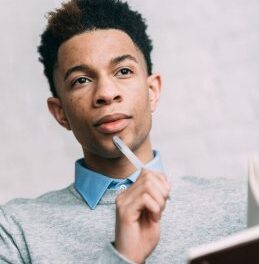By Reginald Williams,
Special to the AFRO
Black Men Unifying Black Men (BMUBM) is an independent, non-political Baltimore-based group of Black men who meet monthly to engage in discussion. Their charge is to effect life-altering changes in the lives of Black men and boys throughout Baltimore.
“We are a hub for bringing Black men together for the purpose of knowing each other, working together, and creating relationships that allow great things to happen,” said Bill Goodin, one of the six founding members.
The group meets on the first Saturday of each month over breakfast at a Black-owned establishment. Most meetings revolve around how to elevate the lives of Baltimoreans, but some Saturdays feature keynote speakers like local politicians.
“We don’t give political endorsements as a group,” Goodin shared, “but we do bring in politicians to speak to us so that members of the group can learn what’s being proposed, and we can help to educate our members.”
The prevailing narrative nationwide embraces the belief that Black men are largely absent and do not commune for the benefit of the community. But BMUBM has, for the last eight years, served as the root organization for other grassroots organizations. Their impact is evident in the businesses they’ve helped build. We Are Us Movement, established by Andrey Bundley, a BMUBM founder, assists Charm City residents, especially men, and boys, with securing resources.
“Dr. Bundley and are in the streets. They go into different neighborhoods bringing resources and connecting people to those different resources like drug counseling and helping people get jobs,” explained Goodin.
Kioba Business Ventures, a Black-owned real estate development company launched by Reedy Bass, another founder, represents another community-based organization inspired by BMUBM. The venture is a collection of Black men pooling their money to purchase and refurbish decaying homes. And the reach of the organization has extended to Philadelphia. So enamored by what BMUBM was achieving in Baltimore, brothers from the City of Brotherly Love established their own chapter.
One of BMUBM’s most prominent initiatives is publicly recognizing Black men for the work they produce on behalf of the citizens of Baltimore. In 2021, BMUBM decided to dedicate one Saturday each year to acknowledge Black men who have impacted the citizens of Baltimore. Realizing that good Black men make invaluable but ignored contributions to Black families, Michael Johnson, a BMUBM founding member, was inspired to give Black men their flowers while they could smell them.
“This is an annual event where we honor Black men. We should recognize and honor Black men out here doing the work. You often have people out there doing the work who may not have name recognition. Brothers work 20 or 30 years working on the streets and are not recognized for their contributions,” said Goodin. “We just want to recognize Black men working towards our interest in terms of trying to lift us up, trying to make us a better people, and trying to make the city better.”
In November 2022 during the 2nd Annual Honoree Ceremony, BMUBM honored 24 Black men. A few of the honorees included David Miller, the renowned international author of children’s books, Rep. Kweisi Mfume (D-MD 7th), Iman Earl El-Amin, resident iman of Muslim Community Cultural Center of Baltimore and vice president of National Centers on Institution and Alternatives, Bowie Mayor Tim Adams and Richard Rowe, a mental health consultant.
“I am truly honored and profoundly grateful to have been selected by this life-affirming and intergenerational organization,” explained Rowe, a project consultant for The Black Mental Health Alliance for Education and Consultation. “[Black Men Unifying Black Men] is made up of respected and esteemed Black men who exemplify community service, Brotherhood, the utmost respect for Black women, the elevation of Black family life, and the upliftment and unification of Black men throughout the city.”
Goodin believes Black men have the capacity to come together nationwide but promotes that they must work collaboratively.
“If we have any hope in saving ourselves, Black men will have to play an important role,” said Goodin. “We have to recognize the fact that we need to unify. We need to know each other so that we can work together.”
Reginald Williams, the author of “A Marginalized Voice: Devalued, Dismissed, Disenfranchised & Demonized” writes on Black men and Holistic Health concerns. Please email bookreggie@reginaldwilliams.org or visit amvonlinestore.com for more information.
The post Black Men Unifying Black Men: how one organization is working to positively impact Baltimore appeared first on AFRO American Newspapers .










